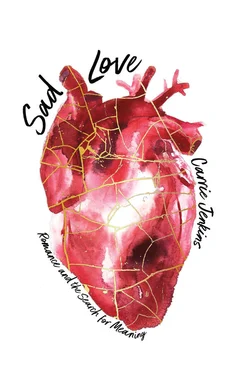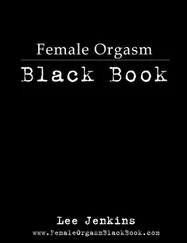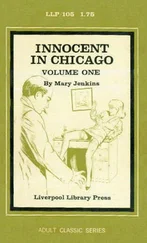1 Cover
2 Title Page Sad Love Romance and the Search for Meaning Carrie Jenkins polity
3 Copyright Copyright © Carrie Jenkins 2022 The right of Carrie Jenkins to be identified as Author of this Work has been asserted in accordance with the UK Copyright, Designs and Patents Act 1988. First published in 2022 by Polity Press Polity Press 65 Bridge Street Cambridge CB2 1UR, UK Polity Press 101 Station Landing Suite 300 Medford, MA 02155, USA All rights reserved. Except for the quotation of short passages for the purpose of criticism and review, no part of this publication may be reproduced, stored in a retrieval system or transmitted, in any form or by any means, electronic, mechanical, photocopying, recording or otherwise, without the prior permission of the publisher. ISBN-13: 978-1-5095-3960-4 A catalogue record for this book is available from the British Library. Library of Congress Control Number: 2021951320 The publisher has used its best endeavours to ensure that the URLs for external websites referred to in this book are correct and active at the time of going to press. However, the publisher has no responsibility for the websites and can make no guarantee that a site will remain live or that the content is or will remain appropriate. Every effort has been made to trace all copyright holders, but if any have been overlooked the publisher will be pleased to include any necessary credits in any subsequent reprint or edition. For further information on Polity, visit our website: politybooks.com
4 Preface Notes
5 Acknowledgements
6 Introduction Notes
7 1 The Paradox of HappinessAs dreamers do Happiness cannot be pursued I give myself very good advice (but I very seldom follow it) The taming of happiness Notes
8 2 The Romantic Paradox Mad love The pursuit of happy ever after Notes
9 3 DaimonsThe ghosts of old meanings Eudaimonia vs. the Paradox of Happiness Eudaimonia vs. the Romantic Paradox Job-crafting Love-crafting Notes
10 4 Know ThyselfChoice problems Search for the hero inside yourself If it makes you happy (why the hell are you so sad)? If you’re eudaimonic and you know it Notes
11 5 Eudaimonic LoveLove and “negative” emotions Production and consumption Buy or build Now what? Notes
12 End User License Agreement
1 Cover
2 Table of Contents
3 Title Page
4 Copyright
5 Preface
6 Acknowledgements
7 Introduction
8 Begin Reading
9 End User License Agreement
1 iii
2 iv
3 vi
4 vii
5 viii
6 ix
7 x
8 xi
9 xii
10 xiii
11 xiv
12 xv
13 xvi
14 xvii
15 xviii
16 xix
17 xx
18 1
19 2
20 3
21 4
22 5
23 6
24 7
25 8
26 9
27 10
28 11
29 12
30 13
31 14
32 15
33 16
34 17
35 18
36 19
37 20
38 21
39 22
40 23
41 24
42 25
43 26
44 27
45 28
46 29
47 30
48 31
49 32
50 33
51 34
52 35
53 36
54 37
55 38
56 39
57 40
58 41
59 42
60 43
61 44
62 45
63 46
64 47
65 48
66 49
67 50
68 51
69 52
70 53
71 54
72 55
73 56
74 57
75 58
76 59
77 60
78 61
79 62
80 63
81 64
82 65
83 66
84 67
85 68
86 69
87 70
88 71
89 72
90 73
91 74
92 75
93 76
94 77
95 78
96 79
97 80
98 81
99 82
100 83
101 84
102 85
103 86
104 87
105 88
106 89
107 90
108 91
109 92
110 93
111 94
112 95
113 96
114 97
115 98
116 99
117 100
118 101
119 102
120 103
121 104
122 105
123 106
124 107
125 108
126 109
127 110
128 111
129 112
130 113
131 114
132 115
133 116
134 117
135 118
136 119
137 120
138 121
139 122
140 123
141 124
142 125
143 126
144 127
145 128
146 129
147 130
148 131
149 132
150 133
151 134
152 134
Sad Love
Romance and the Search for Meaning
Carrie Jenkins
polity
Copyright © Carrie Jenkins 2022
The right of Carrie Jenkins to be identified as Author of this Work has been asserted in accordance with the UK Copyright, Designs and Patents Act 1988.
First published in 2022 by Polity Press
Polity Press
65 Bridge Street
Cambridge CB2 1UR, UK
Polity Press
101 Station Landing
Suite 300
Medford, MA 02155, USA
All rights reserved. Except for the quotation of short passages for the purpose of criticism and review, no part of this publication may be reproduced, stored in a retrieval system or transmitted, in any form or by any means, electronic, mechanical, photocopying, recording or otherwise, without the prior permission of the publisher.
ISBN-13: 978-1-5095-3960-4
A catalogue record for this book is available from the British Library.
Library of Congress Control Number: 2021951320
The publisher has used its best endeavours to ensure that the URLs for external websites referred to in this book are correct and active at the time of going to press. However, the publisher has no responsibility for the websites and can make no guarantee that a site will remain live or that the content is or will remain appropriate.
Every effort has been made to trace all copyright holders, but if any have been overlooked the publisher will be pleased to include any necessary credits in any subsequent reprint or edition.
For further information on Polity, visit our website: politybooks.com
When I set out to write a book about love in 2017, I was not happy. I was pretty sad. But I was still in love, or at least so I thought. All the messages from the culture around me were telling me what they had always told me: that being in love was about being happy. Being happy ever after. Happy with someone. Happy together.
I had some questions. What if I’m not happy? What if I’m sad – or worse, depressed? Does that mean I’m no longer in love? Am I now unloving? Unlovable?
I desperately hoped the answer to the last two was “no.” And I strongly suspected that was the answer. Even though I wasn’t happy, and didn’t know when, how, or even whether I would become happy in the future, I didn’t seriously doubt that I was in love with my partners. So instead, like any good logician, I questioned the other assumption: the one about how being in love means being happy.
Being a philosopher by tendency, as well as by academic training, I wanted to think this assumption through, so that I could talk back to it (in my own head, first of all) with some confidence and conviction. Why had I been associating romantic love with happiness? What is the point of that association? Where does it come from? What are its effects?
Of course we all know that “happy ever after” comes from fairy tales, and we know fairy tales for what they are: fictions and fantasies. 1Real love isn’t always happy. I knew that. But a fantasy is powerful, even when we know what it is. Our fantasies – our ideals – have a crucial part to play in shaping our lives. An ideal is something to strive for, something we can measure ourselves against and find ourselves wanting. Maybe I was still in love, but I was inclined to feel as if my sadness was a kind of failure condition for my relationships. Good love – ideal love – should be happy ever after, shouldn’t it? To say that the romantic “happy ever after” is unrealistic does nothing to diminish its status as an ideal, and hence its power to convince us we are falling short.
Читать дальше












